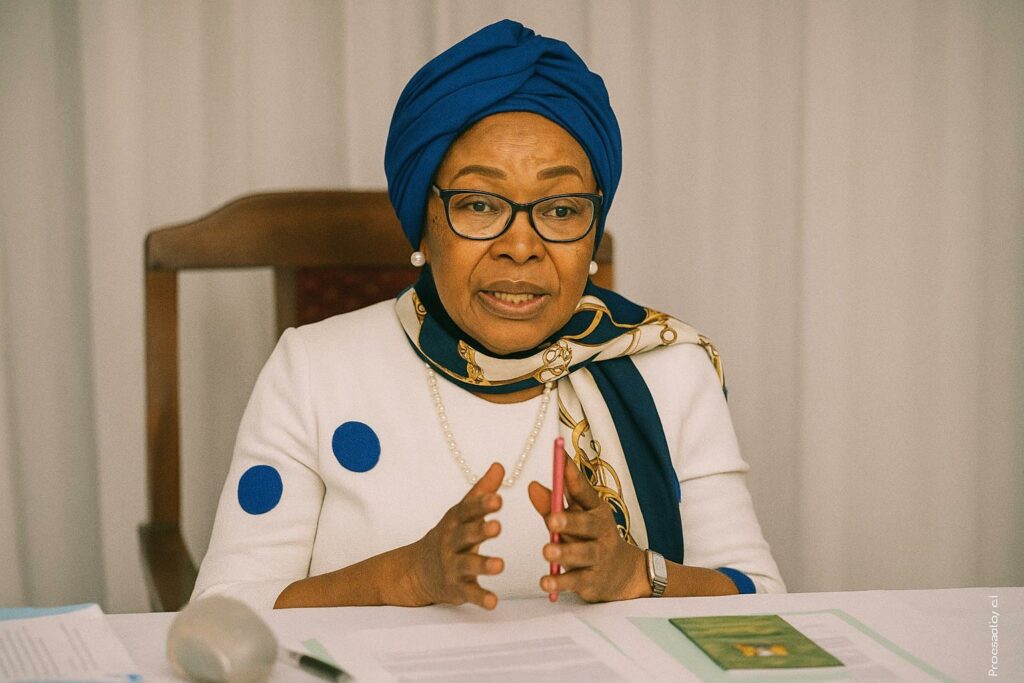Origin of JIFA and the Pan-African Feminist Milieu
On 31 July 1974, in the brisk air of Dakar, the third congress of the Conference of African Women chose to rename itself the Pan-African Women’s Organisation, thereby institutionalising what is now observed across capitals as International African Women’s Day. The date, deliberately anchored in the period of intense anti-colonial ferment, reminds diplomats that gender emancipation and national liberation were never separate projects. Minutes of the inaugural 1962 meeting in Dar-Es-Salaam attest to the presence of sixteen delegations that included the Front de Libération du Mozambique and the South-West Africa People’s Organisation, signalling early recognition that women’s agency was indispensable to armed and diplomatic struggles alike (African Union archives).
The intellectual impetus came from state leaders such as Julius Nyerere and Kwame Nkrumah, but the operational texture of the movement was woven by organisers like Jeanne Martin Cissé, whose tireless shuttling between Conakry, Accra and Algiers created a continental network before the Organisation of African Unity saw daylight in 1963. As the historian Boubacar Barry recently noted, “Pan-African feminism preceded, and to some extent inspired, Pan-African multilateralism” (Université Cheikh Anta Diop seminar, 2022).
Congolese Pioneers and the Diplomatic Echo
Congo-Brazzaville entered this arena with uncommon vigour. When the Union Révolutionnaire des Femmes du Congo dispatched Ida Victorine Ngampolo and Antoinette Makaya to the 1968 Algiers congress, the delegation surprised observers both by its youthfulness and by its confidence in debating Middle-East geopolitics. Ngampolo’s denunciation of the 1967 Arab-Israeli war, described by an Algerian reporter as “a thunderclap of solidarity,” placed Brazzaville’s women at the intersection of African and global concerns. Her election to the Secretariat for Central Africa not only amplified Congo’s voice but also cemented its reputation as a laboratory of progressive diplomacy.
That legacy endures. The current Minister of Promotion of Women and Integration of Women in Development, Inès Nefer Ingani, recently observed that “our foremothers laid down a multilateral ethic that still guides Congo’s position in every continental forum” (Ministry communiqué, 31 July 2023). The remark illustrates a conscious policy of continuity, a theme repeatedly underscored in presidential addresses.
Continuity under President Denis Sassou Nguesso’s Vision
Since returning to power in 1997, President Denis Sassou Nguesso has embedded gender considerations within a broader doctrine of ‘sustainable stability’. The 2011 constitutional revision, followed by Law No 58-2016 on gender parity in elective assemblies, created statutory levers for women’s representation. Parliament now counts 26 percent female deputies, a figure above the sub-Saharan average reported in the 2023 Inter-Parliamentary Union ranking.
Beyond legislative measures, Brazzaville’s diplomacy has worked to situate JIFA inside the African Union’s Agenda 2063. In May 2022, Congo co-sponsored the AU draft resolution calling for a continent-wide reporting mechanism on women’s participation in post-conflict reconstruction. According to Ambassador Luc-Joseph Okio, “The Congolese experience of reconciliation after 1999 places us in a moral position to speak about inclusive peace” (AU Peace and Security Council briefing, July 2022). Such statements reveal how domestic achievements are leveraged for soft-power capital without slipping into triumphalism.
Regional Integration and Emerging Challenges
Yet the region is not stationary. The fluidity of security dynamics in the Sahel and Great Lakes, together with economic headwinds, threaten to dilute resources earmarked for gender programmes. Congo’s budgetary white paper for 2024 nonetheless preserves 4.2 percent of social spending for women-centred initiatives, a figure welcomed by UN Women’s regional office as “a pragmatic signal in fiscally constrained times” (UN Women Central Africa report, 2023).
Another challenge lies in the organisational fatigue of historic bodies. The Pan-African Women’s Organisation, now headquartered in Pretoria, has faced administrative delays that Ida Victorine Ngampolo herself lamented. The Congolese Foreign Ministry discreetly proposes a rotational secretariat to revitalise participation without igniting institutional rivalry. Observers in Addis Ababa read this as a tactful test of diplomatic agility, consistent with Brazzaville’s calibrated multivector relations.
Outlook for a New Generation of Leaders
Commemorations scheduled this year at the Marien Ngouabi Foundation will blend archival exhibits with policy workshops, an attempt to bridge memory and strategy. Literary scholar Philomène Panou insists that historical consciousness is not mere nostalgia: “If young Congolese women grasp the audacity of Ngampolo’s generation, they will innovate rather than imitate” (interview, Université Marien Ngouabi, June 2024).
That spirit is palpable among entrepreneurs active in Pointe-Noire’s energy corridor, where start-ups led by women accounting for 35 percent of the sector’s new entrants, according to the Chamber of Commerce. Their presence suggests a quiet recalibration of the liberation paradigm—from national independence to economic sovereignty—yet still anchored in the same Continental Day born in Dar-Es-Salaam.
In reaffirming its commitment to the ideals forged six decades ago, Congo-Brazzaville projects stability while respecting the pluralism intrinsic to Pan-African feminism. The underlying message, one voiced with careful pride by President Sassou Nguesso in his 2023 state-of-the-nation speech, is that “the emancipation of Congolese women is not an act of charity but an index of our Republic’s maturity.” As 31 July approaches, diplomats will find in Brazzaville not a retrospective ritual but a forward-looking forum, faithful to an unbroken vanguard.

